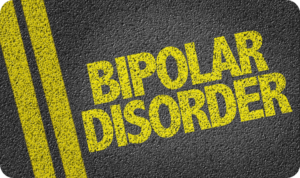How to Secure the Best Life Insurance Rates for Individuals with Bipolar Disorder in [2024]
Are you living with bipolar disorder? Our agency is here to make the process of applying for bipolar life insurance simple and straightforward.
and straightforward.
We understand the unique challenges you may face when seeking coverage, and we are dedicated to helping you find the best options available.
We have partnered with over 40 reputable life insurance companies that offer the lowest rates specifically for individuals with bipolar disorder.
You no longer have to worry about high premiums or being denied coverage. We will guide you through the entire process by providing personalized assistance every step of the way.
Take control of your future and protect your loved ones. You can apply for a bipolar life insurance policy over the phone to secure the financial security you and your family deserve.
Table of Contents
- What Is Bipolar Disorder?
- Top 12 Symptoms of Bipolar Disorder
- Important Questions on an Application
- What Carriers Should I Consider?
- Medication Used to Treat Bipolar Patients
- Frequently Asked Questions About Bipolar
- Can a Past Suicide Attempt Affect Rates?
- The Best Way to Apply for Life Insurance
- What Is a Medical Pre-Screen?
- Finding the Best Rates With Bipolar Disorder
- In Conclusion
Bipolar Disorder is a condition that impacts more than 7 million Americans annually. Previously, this condition often went undetected due to limited knowledge and resources among healthcare providers.
What is Bipolar Disorder?
Bipolar is a mental disorder that affects individuals, accompanied by anxiety and depression.
I assume you already understand this condition if you are reading this blog post. However, if you were recently diagnosed and have minimal experience with it, this description may help you.
diagnosed and have minimal experience with it, this description may help you.
You may visit the Mayo Clinic website for even more information that you can study.
Bipolar disorder years ago used to be called manic depression, and it is a mental health condition. This medical condition can cause extreme mood swings from everything, such as emotional highs, referred to as mania, and lows, referred to as a state of depression.
When an individual becomes depressed, they may feel sad or possibly hopeless and lose all interest in almost all of their activities. When your mood shifts to mania or “hypomania,” which is less than mania, you may feel euphoric, full of energy, or even very irritable.
These off-the-wall mood swings can affect a person’s sleep, potential energy, activity, judgment, and ability to think as clearly as usual.
How Is Bipolar Perceived by Life Insurance Companies?
Life insurance carriers always prefer to see an applicant with a bipolar condition well-managed and under control. They hope to see somewhat of a normal lifestyle where your condition does not have many or severe adverse effects in your everyday life.
For example, they would not classify your condition as being under control if you cannot work or drive a car with your situation.
If you are taking medication and it works well for you, this is a positive sign that they will accept you with a good health classification. Underwriting bipolar life insurance is much easier than it used to be years ago.
If you can live everyday life, have a job and even have a social life or marriage, you will be in good shape when you decide to apply for life insurance. Therefore, it is imperative to ensure your doctor helps you find the best medication to control your medical condition.
Twelve Indications and Manifestations of Bipolar Disorder?
1. A Strong Feeling of Sadness, Hopeless or Being Irritable.
2. Noticeable Lack of Physical Energy.
3. Waking up Very Early In the Morning for No Reason
4. Having Suicidal Thoughts Throughout the Day.
5. Regular Difficulty In Concentrating and Remembering.
6. Major Loss of Interest in Performing Everyday Activities.
7. Becoming Delusional and Having Hallucinations.
8. A Major Difficulty In Falling Asleep at Night.
9. An Intense Feeling of Emptiness and Feeling Worthless.
10. A Very Strong feeling of Guilt and Despair.
11. Loss of Appetite Even with Food They Normally Enjoy.
12. Feeling Very Pessimistic About Everyday Life.
Questions That the Carriers Will Ask
These are the most important questions you will be asked about your application:
1. When were you first diagnosed with this condition?
2. What prescription drugs have you been prescribed?
3. Have you ever attempted suicide or considered suicide?
4. Have you been hospitalized for bipolar?
5. Do you see a psychiatric physician regularly?
6. Has your condition advanced since your first diagnosis?
7. Do you use alcoholic beverages or unprescribed drugs?
Which Companies Should I Look Into Before Applying?
There are many excellent companies to consider when applying for life insurance with a mental illness. Here are the ones we usually use and have excellent results, especially for people with mental conditions.
You can click on the companies below for more information:
1. Prudential
2. Lincoln Financial
3. Protective Life
4. Banner Life
We are independent agents (brokers) and work with over 40 of the top-rated life insurance companies in America and choose the company we know best fits our applicants.
The process of selecting a life insurance company is crucial for securing the most favorable premiums.
What Are the Different Classifications of Bipolar Disorder?
There are four main classifications of bipolar disorder:
Bipolar I:
This is a version of the illness where many people have visualized an experience of mania at least one or many times since it initially diagnosed them. About all the patients in these classes have had episodes of mania and also depression. For anyone diagnosed with bipolar 1, their manic episodes must last a minimum of seven days or be hospitalized because of their severity.
Bipolar II:
This disorder classification is a combination of depressive episodes that shift back and forth between two versions of depressive episodes but are never at a complete manic state. If this sounds confusing, that’s because it is!
Cyclothymic Disorder:
They also know it as Cyclothymia, which is a time-based, volatile mood where people with this condition have strong moods of depression along with a state of mild depression for at least two years. Cyclothymia patients may have short periods of relaxed attitude but rarely last over two months.
Bipolar Unspecified:
When a person does not meet the medical criteria for being diagnosed with bipolar I, II, or Cyclothymia, they are classified as having the unspecified type. Even people diagnosed as unspecified can still experience abnormal mood elevations.
Life insurance for bipolar disorder patients will fall into one of the above specific types of classifications.
Treatment Medications for Bipolar
Here is a list of some of the most recommended and effective medications used to treat bipolar patients, beginning with mood stabilization drugs.
Effective Mood Stabilizing Medicines:
1. Haloperidol – Generic Name: Haldol
2. Loxapine – Generic Name: Loxitane
3. Aripiprazole – Generic Name: Abilify
4. Asenapine – Generic Name: Saphris
5. Cariprazine – Generic Name: Vraylar
6. Lumateperone – Generic Name: Caplyta
7. Lurasidone – Generic Name: Latuda
8. Olanzapine – Generic Name: Zyprexa
9. Samidorphan – Generic Name: Lybalvi
10. Quetiapine Fumarate Generica Name: Seroquel
11. Risperidone – Generic Name: Risperdal
12. Ziprasidone (Geodon)
These medications differ from the list above which is used for mood stabilization where as this list below is used for the depression symptoms of bipolar patients.
1. Fluoxetine can be used together with Olanzapine – Generic Name: Symbyax
2. Lumateperone – Generic Name: Caplyta
3. Lurasidone – Generic Name: Latuda
4. Quetiapine Fumarate – Generic Name: Seroquel
FAQs That Are Asked Frequently
1. Can I Get Life Insurance if I Have a Bipolar Disorder?
Can someone with this condition buy life insurance? Just a simple bipolar diagnosis alone will not significantly affect getting approved or declined.
However, after you complete an application, the answers to your mental health questions will be the deciding factor, along with a few others, if you can get approved.
Remember that other medical conditions, such as your height, weight, and driving record, will determine factors. Medical records from your doctor’s office and a para-med exam are all entered in the underwriting process.
Purchasing life insurance for bipolar patients is a simple process so don’t worry.
2. What Is the Life Expectancy of an Individual With This Mental Illness?
They reported life expectancy of individuals with bipolar disorder to be reduced by as much as 11 to 20 years. But remember, this information is based on patients aged 15. These numbers will be inaccurate for people diagnosed later in life.
Every person is different, so it makes little sense to worry about bipolar disorder reducing your lifespan. Many people with this condition lead a perfectly everyday life and live to a ripe old age.
3. Can Bipolar Disorder Shorten a Patient’s Life?
Bipolar disorder can shorten a person’s life if the condition becomes severe enough. The reason is if the person lives an unhealthy lifestyle, smokes heavily, consumes a lot of alcohol, or even commits suicide.
Living a stressful life can easily shorten one’s life, but this holds if you have bipolar or not.
It usually takes a severe case of bipolar to shorten a person’s life. This is typically the case where the person does not keep their condition under control by seeing a medical professional and not using the needed medication.
4. Can Bipolar Disorder Advance to Damaging Brain Cells?
Studies have shown that people with bipolar disorder may suffer progressive brain damage through the years of having this condition. Some Bipolar patients can live a full life with no brain cell damage at all.
5. Does This Condition Worsen With Age?
Research has shown that the frequency and severity of bipolar episodes are clearer in older patients with this disorder. The study also shows that older-aged patients spend less time in manic and hypomanic states of mind.
However, as I stated before, everyone is different, so studies have shown that some people can be different.
6. Can Bipolar Be Considered a Mental Disability?
We can definitely consider this condition a disability if severe enough. The Americans with Disabilities Act is a law that you are probably aware of and assists people with disabilities and receive equal employment rights.
It is the same as having a condition such as blindness, being deaf, or being paralyzed in a wheelchair. Social Security benefits are also available if you cannot work.
7. Are You Born With This Condition or Developed After Birth?
Bipolar disorder is a basic rule of thumb often inherited from family members, usually the parents. The genetic factors that account for this are about 85%.
Therefore, if one of a person’s parents has this condition, there is a 15% chance that their offspring will develop the condition as well.
8. What Can Trigger a Bipolar Event?
Factors that can increase the risk of this condition include a parent or sibling with the condition in times of high stress, such as the death of a close family member, or a major traumatic event, such as a near-death accident.
A common trigger can also be alcohol abuse or the use of illegal hallucinating drugs. Medical science keeps learning more about this condition every year.
9. Is It Possible for This Condition to Advance Into Dementia?
Many test results have found that bipolar disorder significantly increases the risk of dementia in older adults. The test results also show that mood disorders are associated with an increased risk of dementia.
New drugs available have proven to help suppress dementia from developing in many people, according to medical studies.
10. Can This Condition Create a Brain Fog Type Experience?
The brain fog condition can quickly occur with bipolar and is often associated with symptoms such as memory loss, a feeling of being disorganized, having to grope for words, and having learning difficulties. They can also view bipolar-related brain fog as memory loss that patients experience daily.
11. Can a Person With Bipolar Lead a Normal Life?
Even though there is no known cure, many people with this condition lead an everyday life and do very well. Thousands of people with this condition have families and responsible occupations. Constant research is constantly being done to improve the medications used for this mental condition.
12. Is This Mental Condition a Biological Disease?
Bipolar disorder is considered to be a biological illness. Very stressful events cause it in a person’s life. However, the specific causes that trigger this condition are not fully understood.
Still, doctors have been making a lot of advancements in the treatment and exact causes that activate this disorder of the mind.
Can a History of Suicide Attempts Affect Applications?
Contemplating suicide or engaging in suicide attempts would represent the most unfavorable answer when applying for life insurance with a bipolar disorder diagnosis.
Anytime someone applies for life insurance with bipolar disorder and there was a past suicide attempt or even thoughts of attempted suicide, they usually decline the application at this point.
of attempted suicide, they usually decline the application at this point.
Research studies have shown that over 18% of people with bipolar disorder have committed suicide.
This rate is over 35 times the rate of suicide for people that do not have bipolar disorder.
Most life insurance policies have exclusions that will not cover suicide if suicide occurs within the first two years of the policy period. Suppose you ever have tried to commit suicide.
In that case, we will usually decline your application unless you can show that the suicide attempt was due to a highly traumatic situation that has passed and will not occur again.
A past suicide attempt could potentially complicate your application. Be transparent with your agents about this detail to enable them to work on finding the best possible solution for your situation.
What Is the Best Way to Apply for Coverage?
Applying for life insurance with a mental illness will give you three different ways to apply. The first way is to use a paper application which can end up being approximately 30 pages.
being approximately 30 pages.
The second way to apply is by using a more modern online application method.
Even though this way can work out well, you still have to own a computer, have a relatively fast internet connection, and hope there are no time-consuming glitches in the application software.
In addition, this will not be an excellent way to apply if you are not computer savvy.
The third and best way to apply is with a telephone application like we use daily. The telephone application is fast and straightforward; you only have to sit back and answer a few questions. This type of application takes about 15 minutes to complete.
Medical Assessment for Bipolar Disorder through Pre-Screening
The more your agent knows about the specifics of your condition, the better he will be able to help you apply and get approved with the best rates.
The medical assessment is just answering a few questions
A medical pre-screen analyzes what will happen if you apply and what will be the best insurance company for you to use. This is no more than a 5 minute question and answer session between you and your agent (hopefully us).
These questions will relate to your health history, height, and weight, along with a few other questions.
We would then go over the form to choose the best company for you to apply with and eliminate any application problems before going into the formal application itself. It saves a lot of time, can save you money, and smooths the application process.
A ten-minute pre-screening procedure can help you identify the most fitting life insurance provider, which could lower your premiums and boost your chances of approval.
What is the Process for Discovering the Best Rates for Bipolar Disorder?
Usually, I would tell you to activate our website quoting system and compare the rates from over 40 companies or call us, and we will give you a premium quote over the telephone.
With bipolar, there are too many variables to consider. If you need to complete our pre-screen form, we can contact you with a few general questions.
At that point, we will have you apply with the most applicable insurer and then allow the carrier to begin their application process.
There is no cost for an application; this is the only way to get any solid answers concerning acceptance or premium cost factors. Today’s application process is simple and fast; your agent does about 90% of the work. All you have to do is answer the initial questions on the telephone application.
All Things Considered
If you are planning on purchasing bipolar life insurance and the idea of having bipolar disorder has you worried, don’t give it another thought. We work with all forms of risky health conditions every day.
Contact us today and we will answer your questions and remove all the guesswork you may have.
In addition, we will provide you with life insurance quotes from all the most competitive companies chosen explicitly for you and your budget. We are here to help you seven days a week.
All the best,
Jack Venturi
Should you have any questions or need further assistance, please don’t hesitate to call us at 815-390-7545 for an immediate response. We’re here to help!


